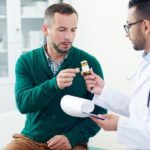As more states across the U.S. are legalizing marijuana – for medical and/or recreational purposes – and as more teens are turning to pot in favor of cigarettes, the landscape has changed for parents who are trying to discourage their teenage children from smoking or eating the herbal drug. So, since many states are legalizing […]









